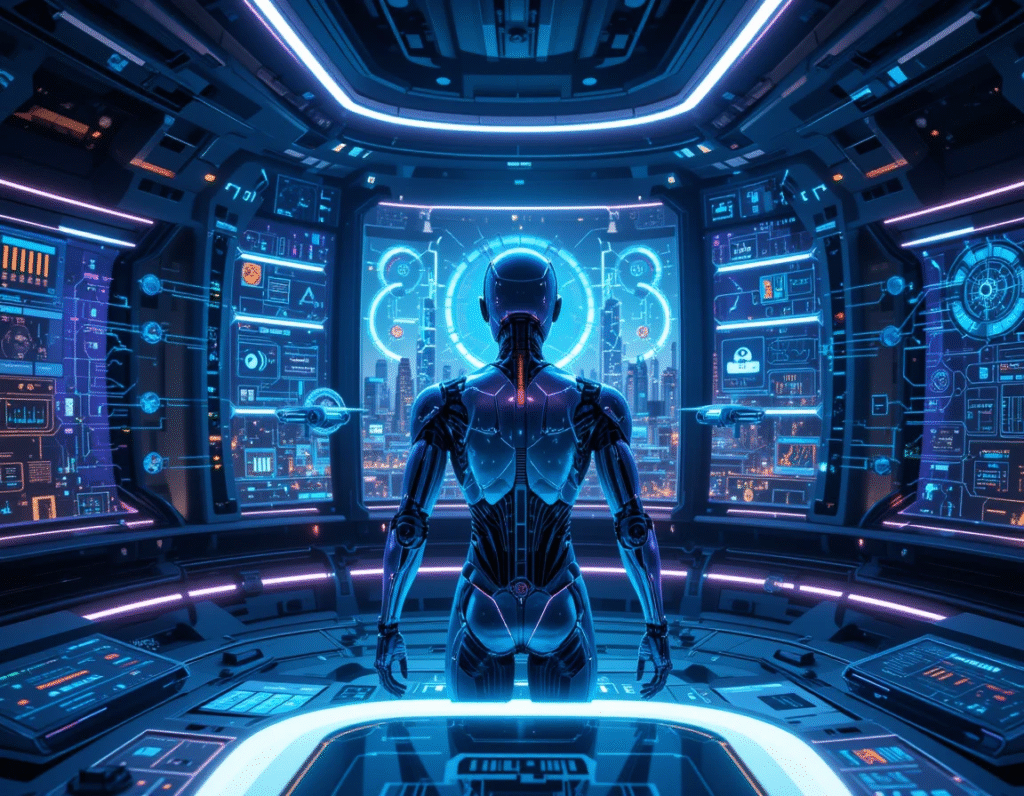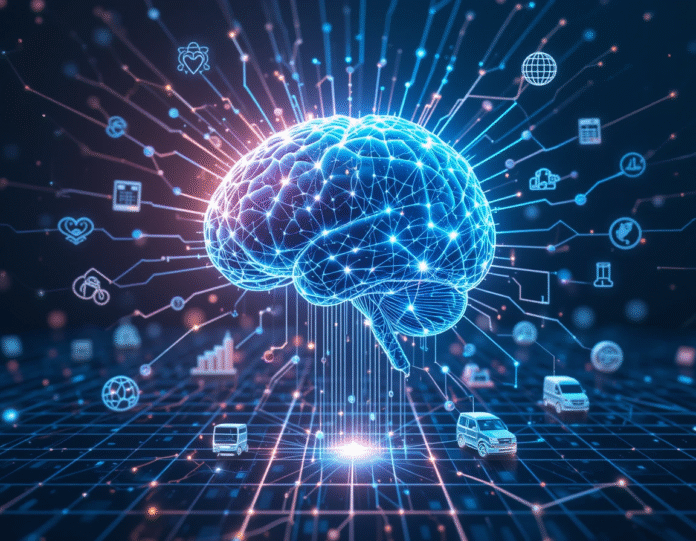🧠 Introduction
In 2025, Agentic AI is emerging as a transformative force in artificial intelligence, redefining how machines interact with the world. In contrast to conventional AI systems that function within set guidelines, it encompasses independence, flexibility, and decision-making features similar to those of human agents. This evolution is not just a technological leap but a paradigm shift, influencing sectors from healthcare to space exploration.
🤖 What is Agentic AI?
Agentic AI refers to AI systems designed to act as autonomous agents, capable of making decisions, learning from interactions, and adapting to new environments without constant human oversight. These systems are characterized by:
- Autonomy: Operating independently to achieve goals.
- Adaptability: Learning from new data and experiences.
- Proactivity: Initiating actions based on predictive analysis.
This contrasts with traditional AI, which typically requires explicit programming and operates within narrow confines.

🌐 Applications Across Industries
1. Healthcare
Agentic AI is revolutionizing personalized medicine. By analyzing patient data, including genetic information, these systems can recommend individualized treatment plans. For instance, in oncology, it can suggest tailored chemotherapy regimens, enhancing efficacy and reducing side effects.
2. Autonomous Transportation
In the realm of self-driving vehicles, Agentic AI enables cars to make real-time decisions, navigate complex traffic scenarios, and learn from new driving environments, thereby improving safety and efficiency.
3. Space Exploration
NASA and other space agencies are exploring Agentic AI for autonomous navigation of spacecraft and planetary rovers. These systems can make critical decisions during missions, such as adjusting trajectories or conducting scientific experiments, without waiting for instructions from Earth.
4. Creative Industries
Agentic AI is also making inroads into creative fields. In music, for example, AI systems can compose original pieces, adapting to different styles and genres, thereby collaborating with human artists to push creative boundaries.
📊 Comparative Overview
| Feature | Traditional AI | Agentic AI |
|---|---|---|
| Autonomy | Limited | High |
| Adaptability | Low | High |
| Proactivity | Reactive | Proactive |
| Learning | Static | Dynamic |
| Applications | Narrow | Broad |
🔍 Challenges and Considerations
Although Agentic AI brings a variety of advantages, it also introduces certain difficulties:
- Ethical Concerns: Ensuring that autonomous decisions align with human values and ethics.
- Accountability: Determining responsibility for AI-driven decisions.
- Security: Protecting systems from malicious exploitation.
- Transparency: Understanding and interpreting AI decision-making processes.
Tackling these issues necessitates teamwork across various fields, including technology, ethics, and policy-making.
🛠️ Future Outlook
The trajectory of Agentic AI points toward increasingly sophisticated systems capable of complex tasks across various domains. As research progresses, we can anticipate:
- Enhanced Human-AI Collaboration: AI systems working alongside humans, augmenting capabilities and decision-making.
- Regulatory Frameworks: Development of policies to govern the ethical deployment of it.
- Integration into Daily Life: From smart homes to personalized education, it will become an integral part of everyday experiences.
❓ FAQs
Q1: How does Agentic AI differ from traditional AI?
A: It operates autonomously, learning and adapting to new situations without explicit programming, whereas traditional AI functions within predefined parameters.
Q2: What are the risks associated with Agentic AI?
A: Risks include ethical dilemmas, accountability issues, security vulnerabilities, and challenges in transparency and interpretability.
Q3: Can Agentic AI replace human jobs?
A: While It can automate certain tasks, it is more likely to augment human roles, taking over repetitive tasks and allowing humans to focus on complex, creative, and interpersonal aspects of work.
Also read: Unified Payments Interface (UPI) 2.0🏁 Conclusion
Agentic AI represents a significant leap in artificial intelligence, offering systems that are not only intelligent but also autonomous and adaptable. As we navigate the opportunities and challenges it presents, collaborative efforts will be essential to harness its potential responsibly and ethically.
For further reading on the advancements and implications of Agentic AI, consider exploring the following resources:




